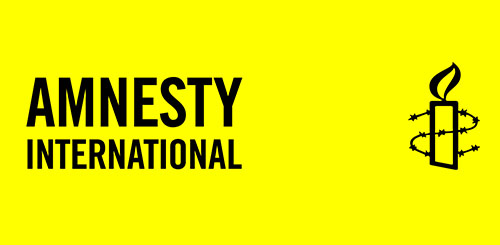Responding to news that two academics and two students from Chiang Mai University were charged on Wednesday, along with a writer, with ‘holding an unlawful political gathering’ after they were photographed at a private academic conference with a banner protesting military surveillance of the event, Katherine Gerson, Amnesty International’s Thailand campaigner said:
“These absurd charges would be laughable were it not for the potentially grave consequences for those involved, and what they say about the parlous state of the rights to freedom of expression and peaceful assembly in Thailand.
“All these students and academics did was make a peaceful, satirical comment about the heavy military presence at a university conference. For this, they could face up to six months in jail under a repressive decree introduced by the military government. Pushing this case through the judicial system highlights the crippling measures authorities are instituting to silence academics and gag any form of dissent.
“The Thai authorities must drop these ridiculous charges and repeal the military decree that outlaws peaceful public assemblies of five or more persons. They must also put an end to the prosecutions, harassment and surveillance of academics, activists and intellectuals that has blighted the country since the coup.”
Background
At the 13th International Thai Studies Conference at Chiang Mai University in July 2017, members of the group held up a banner stating in Thai that “An academic seminar is not a military base,” alluding to the heavy-handed surveillance of the event by security forces in uniform and plainclothes.
The group were photographed holding up the banner, and making salutes based on the “Hunger Games” films. The Royal Thai Army raised a criminal complaint against them in August 2017.
Those indicted today by the Chiang Mai court are conference organizer Professor Chayan Vaddhanaphuti, sociology and anthropology doctoral candidate and lecturer Chaipong Samnieng, MA student Teeramon Buangam, undergraduate student Nontawat Machai and freelance writer and translator Pakavadi Veerapaspong (f). The group have reported continuing ongoing surveillance and harassment over the past year.
Since taking power in a military coup in May 2014, the military government has initiated unjustifiable measures to quash criticism of their rule and engagement in political activities that, among other impacts on the rights to freedom of expression and peaceful assembly, have had a paralysing effect on the exercise of academic freedoms.






















